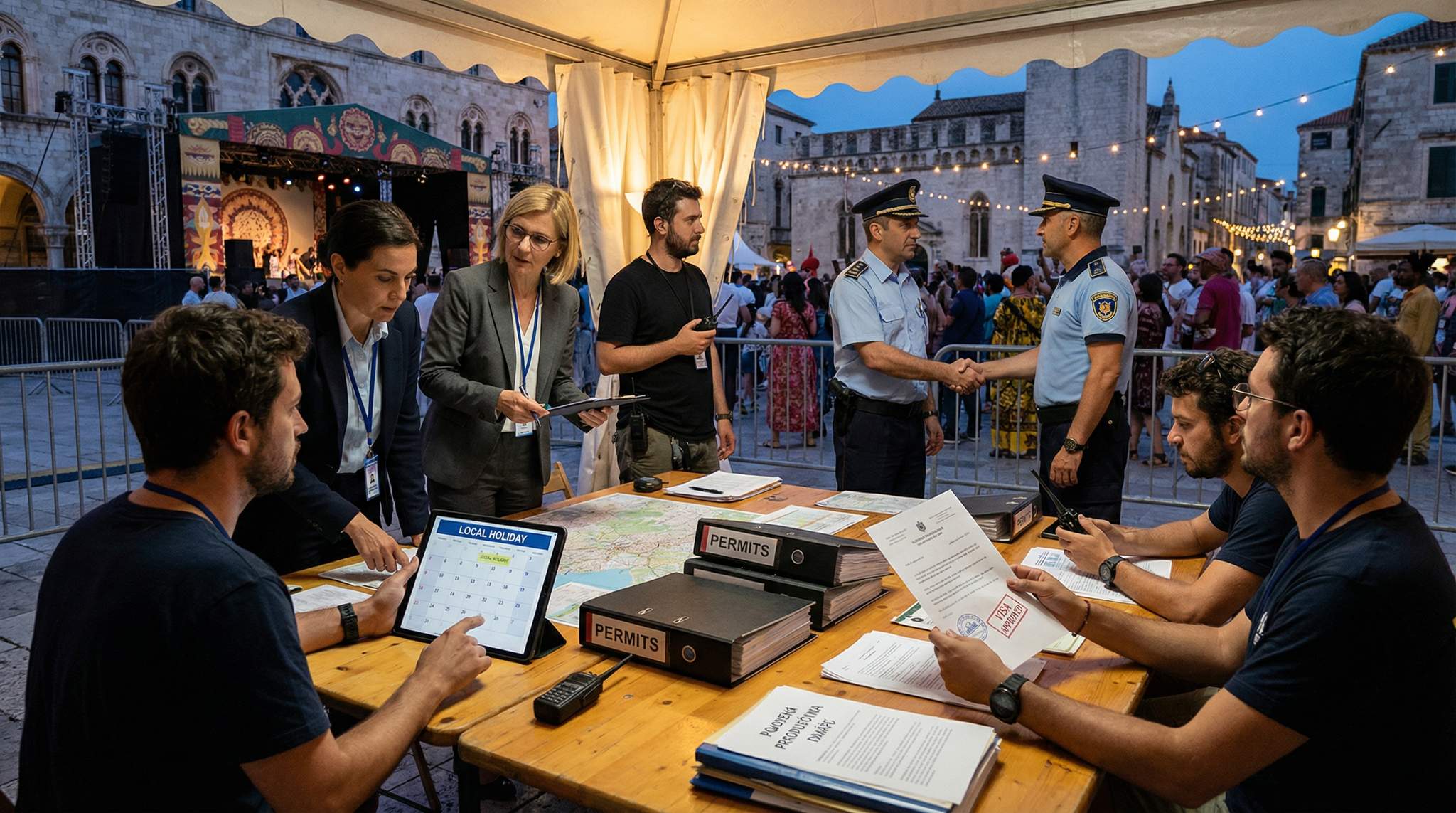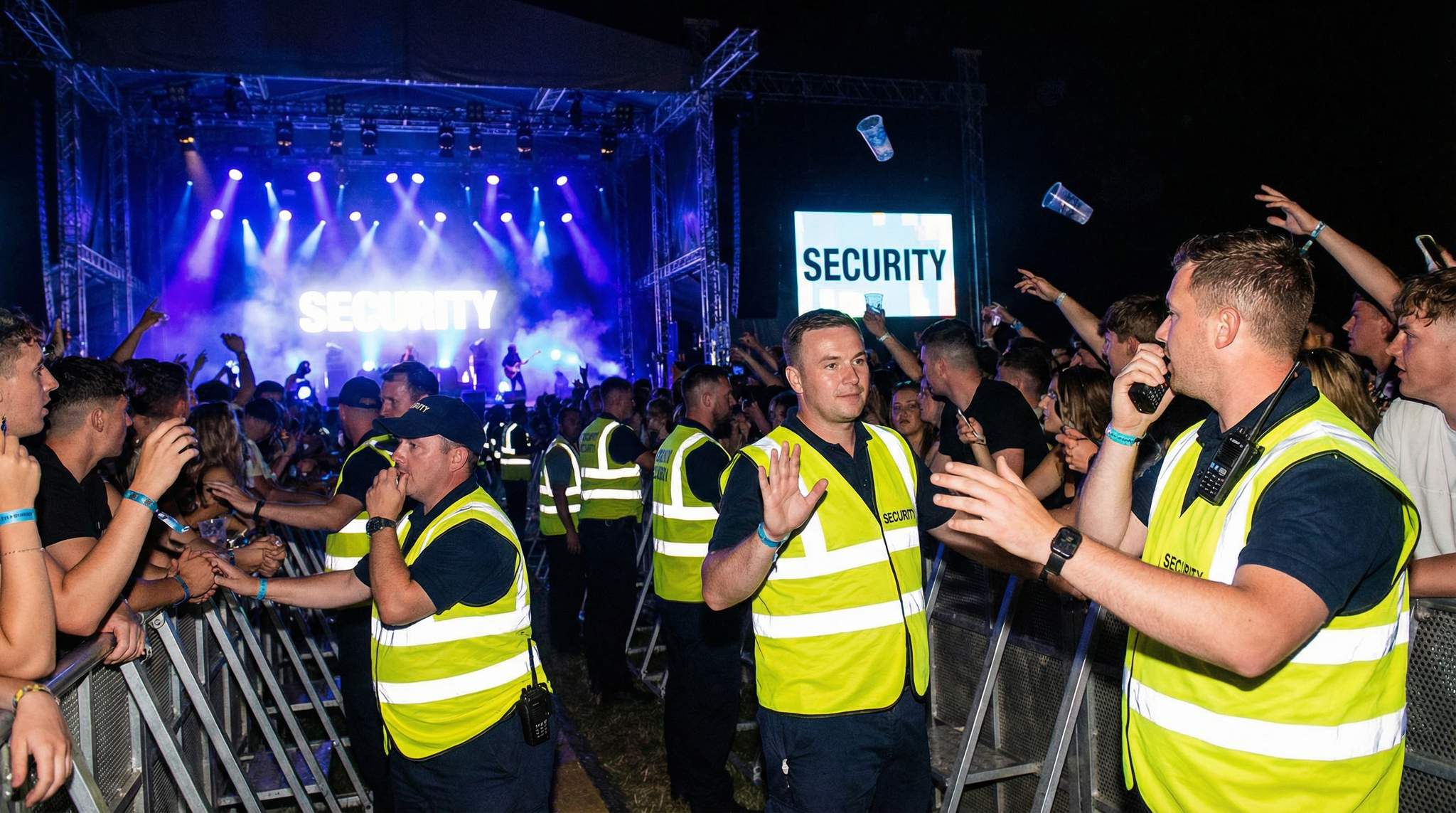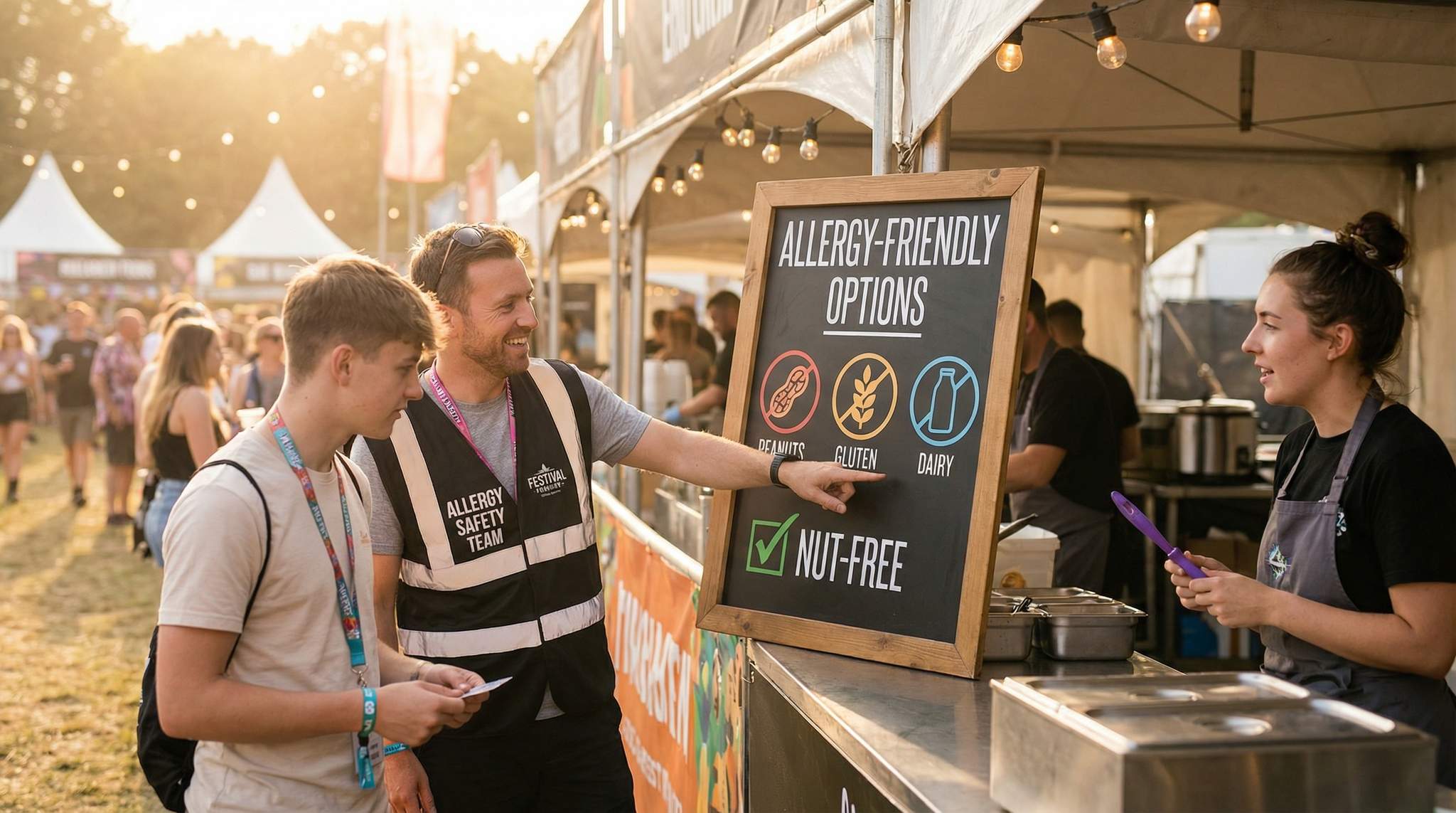Understanding Local Cultural Norms
When taking a festival abroad, a seasoned organizer emphasizes the importance of cultural homework. Every country (and even region) has unique social norms, values, and expectations that can influence how your event is received. What is considered appropriate behavior at a festival in one culture might be frowned upon in another. For instance, audience conduct can vary widely: some cultures encourage exuberant dancing and loud cheer, while others expect more reserved audience behavior. Being aware of these differences helps in training staff and communicating guidelines to attendees so the festival vibe remains positive and respectful of local customs.
Cultural taboos and preferences should directly inform your festival planning. This includes being mindful of local dress codes, gestures, and communication styles. It may also affect content decisions – for example, profanity or certain themes on stage could violate local sensibilities or even regulations. A famous lesson involves aligning festival offerings with local customs: avoid scheduling your event on a significant local holiday or religious observance unless it’s intentional. One festival disastrously set its dates during a major community event abroad, straining local resources and upsetting residents. The takeaway: always check the local calendar for national holidays, religious periods, and even other big events that might conflict. Also, be careful with festival elements that might conflict with local cultural or religious norms – serving beef in a region where cows are sacred, or featuring overtly adult-themed art in a conservative society, can lead to backlash. By respecting these norms, organizers not only prevent offense but often find opportunities to embrace local culture – whether by including traditional music or rituals, working with local artists, or scheduling around important community times. Showing respect and interest in the host culture builds goodwill, making locals more likely to support your festival.
Timing and Local Holidays
Selecting dates for an international festival is about more than avoiding rainy season – it’s about cultural timing too. Local holidays and festivals can greatly impact your event’s success. On one hand, planning during a popular holiday might mean people are off work and in a celebratory mood; on the other hand, you could be competing with deeply ingrained traditions or other events for attention and resources. Imagine unknowingly scheduling a music festival during a city’s long-standing cultural fair – hotels might already be full and the community’s attention elsewhere. This misstep infamously occurred with the ill-fated Fyre Festival in 2017, which coincided with a major local regatta in the Bahamas. The clash overburdened island infrastructure (flights, lodging, transportation) and contributed to that event’s collapse. The lesson is clear: research your host country’s holiday calendar and major events schedule well in advance. Mark down national days, religious periods (such as Ramadan, Lunar New Year, or Diwali), school vacation periods, and any large festivals or sporting events in the region.
Adjusting to local timing also means considering daily schedules and climate patterns that are part of local life. For example, if the host culture observes an afternoon siesta, an all-day program might see low attendance mid-day – better to plan main stage acts for later when people emerge. If religious prayer times occur daily, you may need to avoid loud performances at those moments out of respect. Flexibility with scheduling demonstrates cultural sensitivity and prevents unanticipated interruptions. In summary, align your festival timing with the local rhythm – both the annual calendar and the daily clock – to integrate your event smoothly into the community’s life.
Legal Requirements and Permits
No matter how thrilling the concept, a festival will only happen if it’s fully legal in the host country. Permits, licenses, and regulatory compliance are the backbone of international festival planning. Every jurisdiction has its processes for allowing large events, and these can differ drastically from what you’re used to at home. Start by identifying all the permits you’ll need in the host country and city: common ones include general event permits (permission to hold a public gathering), venue or land use permits, entertainment or performance licenses, and health and safety permits. Many countries require a separate permit for things like live music (often called a public performance license) and have regulations on noise levels. If your festival has food vendors, expect to obtain temporary food service permits and adhere to local health regulations. Serving alcohol? In many places you’ll need a liquor license or equivalent permit specifically for the event, and laws can dictate whether alcohol can be served at all (some countries or regions prohibit it or require specific controls).
It’s crucial to engage with local authorities early to understand compliance requirements. These might include submitting an event safety plan, having certified security personnel or medical staff on site, and meeting fire safety and crowd control standards that are mandated by law. Noise ordinances often enforce curfews or decibel limits to protect residents, so know the cut-off times to avoid fines or shutdowns mid-show. Waste management is another legal expectation – some cities require event organizers to provide a waste disposal and cleanup plan as part of the permit. Non-compliance or missing permits can lead to severe consequences: fines, immediate event closure by authorities, or legal action. In one case, an international festival had to cancel last-minute because the organizers didn’t secure the final permit from the city – a scenario no producer wants to face after investing time and money.
Planning a Festival?
Ticket Fairy's festival ticketing platform handles multi-day passes, RFID wristbands, and complex festival operations.
Local laws can also encompass less obvious areas: for example, some countries have censorship laws affecting festival content (films, music lyrics, art displays) or require insurance policies to cover audience liabilities. Intellectual property laws might affect how you promote the festival (using certain images or music in advertising might need local clearance). Always do thorough legal research or consult a local attorney who specializes in events to ensure all bases are covered. The most successful international festivals treat regulators and law enforcement as partners – by proactively meeting legal requirements, you build trust that can make future editions much easier to approve.
Visas and Workforce Logistics
Bringing in your team, artists, and equipment across borders adds another layer of complexity. Visa regulations for workers and performers must be a top consideration from the start. Do not assume that staff or talent can enter on a tourist visa if they are technically working at the event. Many countries require work visas or special event visas for foreign crew members, technicians, and performers – even for short-term gigs. The application process for these can be time-consuming, often requiring invitation letters, proof of festival credentials, or local sponsorship. For example, countries in the Schengen area of Europe issue cultural event visas for visiting artists, and places like the UK, U.S., or Australia have specific visa categories for entertainers or specialized workers. Budget both time and funds for obtaining the proper visas, and communicate clearly with your artists and crew about documentation needs to avoid anyone being turned away at the border.
Local labor laws also come into play. Some nations mandate that a certain percentage of event staff be hired locally or that foreign workers be registered with local labor departments. Plan to comply with any rules about contracting local security firms, medical services, or stagehands as required. Besides legal necessity, involving local crew and vendors can be a smart move to build community support (and it often simplifies language and cultural barriers on the operational side). If you are flying in equipment (sound systems, lighting rigs, staging), look into customs regulations and import permits. Many countries allow temporary import of gear for events but require a detailed inventory and may ask for a customs bond or carnet documentation to ensure you take everything back out. Failing to declare equipment properly could result in delays at customs or hefty import taxes, which can derail your production schedule.
In essence, treat international workforce and equipment logistics as a project of its own. Align with an immigration expert or use official government guidance to understand visa lead times – some can take months of processing. Ensure travel schedules account for these timelines. By handling visas, customs, and local hiring by the book, you protect your festival from last-minute staff shortages or legal troubles that could arise if authorities find unregistered workers on site.
Partnering with Local Experts
One of the wisest moves an international festival producer can make is to partner with local experts. This might be a local production company, promoter, or even government tourism and cultural bodies. Such partners have on-the-ground knowledge that is invaluable: they know the ins and outs of bureaucracy, have established relationships with authorities and vendors, and understand cultural nuances that a foreign organizer might miss. In many successful overseas festivals, a local co-producer handles critical tasks like securing permits through the proper channels, advising on the best local suppliers, and mediating with community stakeholders. They can also help navigate any language barriers in contracts or negotiations – official paperwork and discussions with officials may not always be in English, for example.
Local partners also lend credibility. When the community sees familiar, trusted local organizations involved, they are more likely to embrace the event. Government agencies or city officials might be more comfortable granting approvals if a known local entity is accountable alongside the foreign promoter. Additionally, a local partner can guide the festival’s marketing and messaging to resonate with residents. They’ll know which media outlets to use, how to frame the event so it’s appealing and culturally appropriate, and even small details like whether the festival name or theme has any unintended connotations in the local language.
Need Festival Funding?
Get the capital you need to book headliners, secure venues, and scale your festival production.
Beyond formal partners, tap into local networks. Hiring local consultants or fixers – people who specialize in cutting through red tape – can expedite processes like permitting and compliance inspections. Engaging community leaders or local cultural figures as advisors can help in shaping the festival to honor local traditions. For example, involving a local music curator or cultural ambassador could help integrate a segment of local talent into your lineup, which not only appeases cultural gatekeepers but also enriches the festival experience for attendees. In short, don’t go it alone on foreign soil – collaboration with locals is often the bridge that turns an ambitious plan into a smoothly executed, legal, and culturally harmonious event.
Adapting to Festival Type and Audience
Different types of festivals and target audiences come with their own special considerations when going international:
- Music Festivals: Research the local music preferences and consider booking popular regional acts alongside headliners. Be mindful of volume and curfew regulations, as well as lyrical content if there are language or decency laws. Tailor the experience so that local music fans feel represented and comfortable.
- Food and Drink Festivals: Pay extra attention to dietary laws and food customs. Verify which ingredients or dishes might offend cultural or religious sensibilities (e.g., avoiding pork in Muslim-majority areas or beef in Hindu-majority regions). Also ensure compliance with local health codes for food handling, and check if alcohol is permitted or requires special service rules.
- Film or Art Festivals: Look into censorship rules and film classification standards. Some countries have strict regulations on political, religious, or adult content. Plan to include local filmmakers or artists to engage the community, and provide translations or subtitles in the local language for accessibility.
- Cultural or Heritage Festivals: When showcasing culture (even if it’s not the host country’s own culture), involve local cultural institutions or experts. For example, if you’re producing a Japanese cultural festival in Europe, connect with the Japanese embassy or cultural center there. Ensure presentations are respectful and accurate, and be aware of any cultural tensions or sensitivities among different demographic groups in the host country.
- Multi-Genre or Large-Scale Festivals: Big events that attract international attendees (like global music or lifestyle festivals) should invest in multilingual signage and staff. Prepare to accommodate diverse crowds by offering a mix of international and local cuisine, and provide information on local etiquette to attendees from abroad (for instance, a festival guidebook or app that includes “know before you go” cultural tips).
By tailoring strategies to the festival’s niche and the anticipated audience, an organizer shows foresight and respect, which boosts the event’s reputation abroad.
Cultural Sensitivity as a Success Factor
At the heart of any great international festival is cultural respect. Festivals are ultimately about community and shared experience. When you host one abroad, you’re entering someone else’s community. Showing that you value the local way of life is not just ethical – it’s practical. Local attendees will feel more welcome, and local authorities will view your event more favorably. Conversely, cultural insensitivity can lead to public relations disasters, protests, or even official sanctions. There have been instances where festivals faced backlash because their themes, advertising, or on-site practices were seen as disrespectful to local culture. These situations underscore that no amount of flashy production can make up for a lack of respect.
On the flip side, there are success stories where cultural sensitivity became a festival’s shining strength. Think of a world music festival that travels to different countries: the most celebrated editions are those where international acts share the stage with beloved local artists, and where the programming honors the host country’s heritage. Audiences and press rave about those events because they’re not just an imported festival – they become a genuine cultural exchange. That kind of outcome only happens when producers actively listen and learn from the local community. It might mean adjusting aspects of your festival’s brand or operations to fit the locale – whether that’s offering a wider variety of local food, adapting the schedule around prayer times, translating signage and announcements into the local language, or training your staff on local etiquette (even a few key phrases in the local language by festival staff can warm hearts).
Finally, legal compliance is intertwined with cultural respect. Following local laws shows you respect the country’s governance and community well-being. It’s common for international organizers to feel frustrated by unfamiliar regulations, but those rules usually exist for good reasons (public safety, local values, environmental protection, etc.). Embracing the legal framework instead of fighting it will yield a better festival and a better relationship with your host country. In conclusion, treating cultural sensitivity and legal compliance as top priorities isn’t just about avoiding trouble – it’s about enhancing your festival’s authenticity and ensuring longevity. A festival that harmonizes with its host culture and operates above-board legally will not only avoid pitfalls but create meaningful experiences that people will remember for all the right reasons.
Frequently Asked Questions
Why is cultural awareness important when planning a festival abroad?
Cultural awareness ensures festival activities align with local social norms, values, and expectations. Researching taboos regarding dress codes, audience conduct, and content helps prevent offense, such as serving restricted foods or featuring adult themes in conservative societies. Respecting these customs builds goodwill and encourages local support for the event.
How do local holidays impact international festival scheduling?
Scheduling conflicts with local holidays or major events can overburden infrastructure like hotels and transportation, potentially causing the festival to collapse. Organizers must check the host country’s calendar for religious periods, national days, and existing cultural fairs to avoid competing for community attention and resources.
What legal permits are needed for an international festival?
Hosting a festival abroad typically requires general event permits, venue land use approvals, and specific licenses for live performance and noise levels. Organizers must also secure temporary food service permits and liquor licenses if applicable, while adhering to strict compliance requirements for safety plans, waste management, and crowd control.
Do performers and crew need visas for festivals abroad?
Most countries require specific work visas or cultural event visas for foreign artists, technicians, and crew members, as tourist visas are often legally insufficient. The application process can take months and may require invitation letters or sponsorship, so organizers must budget time to ensure all personnel have proper documentation before travel.
How does partnering with local experts benefit international festivals?
Collaborating with local production companies or promoters helps foreign organizers navigate complex bureaucracy, language barriers, and cultural nuances. Local partners facilitate securing permits through proper channels, provide access to trusted vendors, and lend credibility to the event, making government officials and the community more likely to embrace the festival.
What are the customs requirements for shipping festival equipment internationally?
Importing sound systems, lighting, and staging temporarily often requires detailed inventories and carnet documentation to prove the gear will leave the country after the event. complying with these customs regulations is essential to avoid hefty import taxes or border delays that could derail the production schedule.





